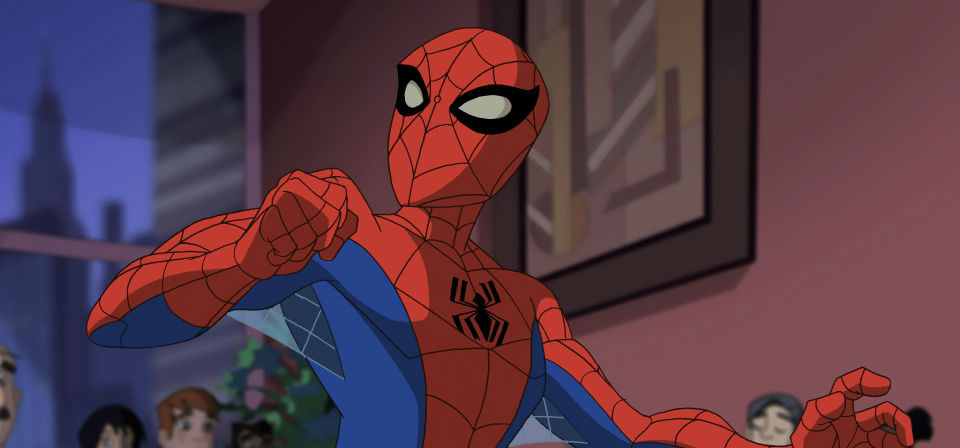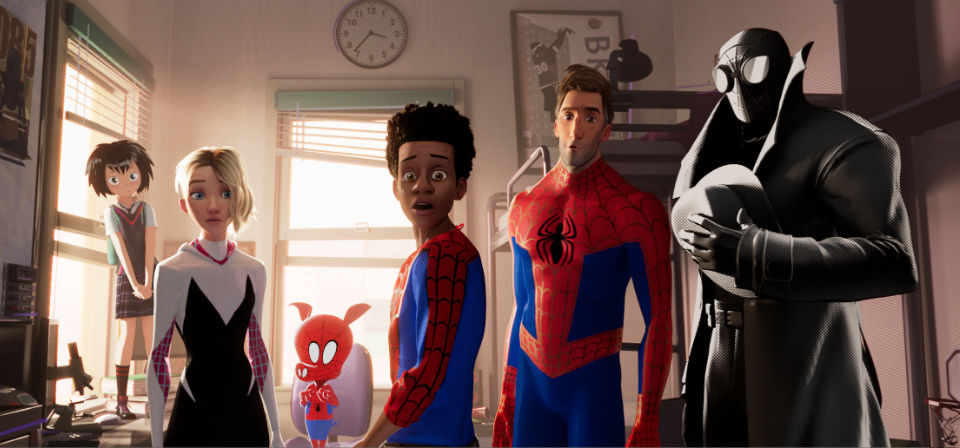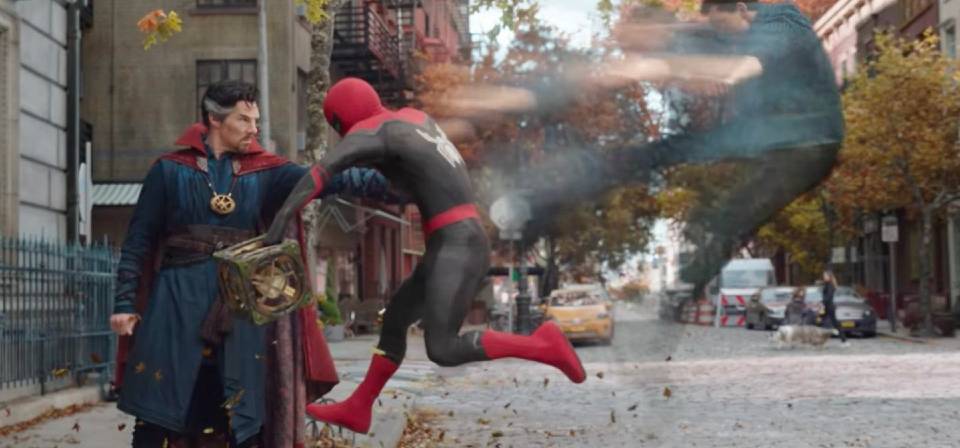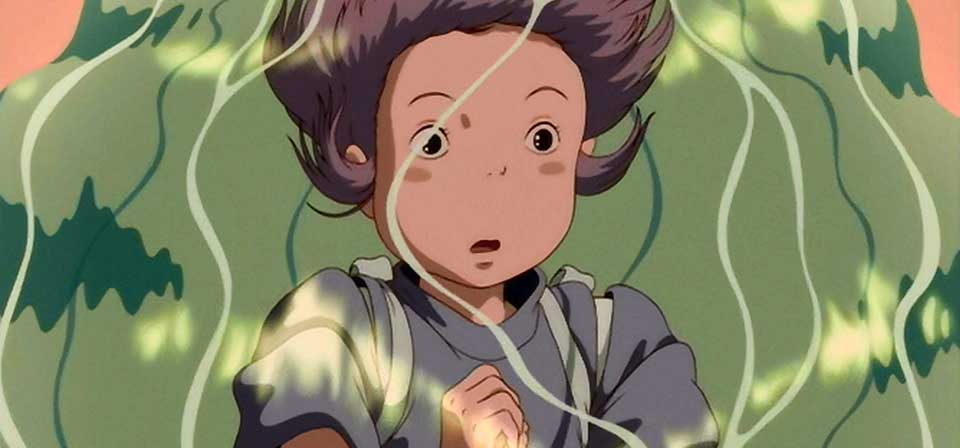Search Results
219 records found
Spam filter snafu
Dear readers: I just discovered a large number of reader emails incorrectly flagged as spam by my email client’s spam filter. If you wrote to me in October and I haven’t written back, that may be the reason why. If you wrote to me before October and I haven’t written back, I’m afraid your email may have been automatically deleted. I apologize for this and will be more vigilant about watching the spam filter in the future. I hope you’ll write again.
Spartacus (1960)
Though pre-Christian, Spartacus prefigures and provides historical context to the Gospel story in intriguing ways — most obviously in the bold climax, the film’s greatest strength. Spartacus doesn’t entirely escape the melodrama, cheesiness, and anachronistic hairstyles that afflict the genre and period, but the comparative frankness of the politics, sexuality, and violence, and especially the downbeat third act and memorable finale give it a dramatic heft beyond its predecessors. The decadence and corruption of Rome, too, is vividly contrasted with the wholesome, family-oriented society of the rebel slaves.
Special “Reel Faith”: Religious Films Edition! And “Catholic Answers Live!”
Two notable back-to-back Decent Films events tonight!

Spectacular, Spectacular Spider-Man!
All good things must come to an end, but “The Spectacular Spider-Man” ended too quickly, after only two seasons. In April 2010 Marvel pulled the plug on the acclaimed but long-stalled series, leaving the season 2 finale as the satisfying but not fully resolved series climax.
Spellbound (2003)
Spellbound, Jeffrey Blitz’s endearing, heartbreaking, deeply rewarding documentary about eight brainy middle-school kids competing with nearly 250 other spellers in front of the ESPN-watching world, is full of such unforgettable moments. Not just a documentary of a contest, Spellbound is a behind-the-scenes look at the lives of contestants of various regional and socioeconomic backgrounds whose only common bond is a facility with putting words together.
Spider-Man (2002)
From its breathless, cartoony title sequence, with the letters of cast members’ names stuck like flies in a vast spiderweb,
Spider-Man 2 (2004)
This is what a Spider-Man movie should be — freewheeling, rip-roaring, hilarious, heartfelt, over the top.
Spider-Man 3 (2007)
Spider‑Man 3 is a movie stuffed to bursting — with action, plotlines, characters, humor, energy, moods, spectacle and certainly inspiration. Like its web-headed hero careening crazily through the canyons of Manhattan at the end of a web-line, the film swings breathlessly and without warning from one thing to another, from breakneck excitement to outrageous silliness to comic-book morals about responsibility, sacrifice and now even vengeance and forgiveness.

Spider-Man: Across the Spider-Verse is an incomplete triumph
What I can tell you at this point about Across the Spider-Verse is that I want to see it about ten more times.

Spider-Man: Far From Home (2019)
Tony, Tony, Tony. How can we miss you if you won’t go away?

Spider-Man: Homecoming (2017)
No one almost destroys the universe or the planet, or even demolishes a large European city or a sizable chunk of a New York borough, in Jon Watts’ Spider-Man: Homecoming.

Spider-Man: Into the Spider-Verse (2018)
Here, at last, is the Spidey that family audiences need and the Spidey they deserve — and that’s just two of them!
![Spider-Man: Into the Spider-Verse [video]](/uploads/articles/spiderman-into-the-spider-verse-vid.jpg)
Spider-Man: Into the Spider-Verse [video] (2018)
Chris Miller and Phil Lord, Chris Miller and Phil Lord / Do whatever Chris Miller and Phil Lord do.
Can they swing from a thread? / No they can’t, they’re Hollywood filmmakers.

Spider-Man: No Way Home (2021)
Not so long ago, a movie like John Watts’ Spider-Man: No Way Home would definitely have prompted me to open my review by dubbing it, if not the best Spider-Man movie ever, at any rate the most Spider-Man movie ever.
The Spiderwick Chronicles (2008)
The Spiderwick Chronicles is a smart, scary fantasy family thriller that offers depth and meaning in a genre littered with mere competent entertainment. Where films like Zathura and Night at the Museum offer roller-coaster excitement but little more, The Spiderwick Chronicles is actually about something.

The Spirit (2008)
The movie version of The Spirit is a straightforward excursion into the Frank Miller Universe at its most reductionist, self-parodying and content-free. There are no characters or relationships, only placeholders where characters ought to be. There is no drama or conflict, only dueling line readings and cartoony brutality. There is nothing at stake and nothing and no one to care about, only a pointless, shapeless exercise in wildly veering moods and styles.

The spirit of Rocky lives on in the Creed trilogy
Sports movies are among the most durable of genres, and nostalgia sequels and long-running franchises have become almost the norm for popular movies from the past half-century, but the legacy of Rocky is unique.
Spirit: Stallion of the Cimarron (2002)
A strangely grim indoctrination into the politics of victimization, Spirit apparently expects kids to slog willingly through scene after scene of this stuff, not because it’s all such fun to watch, but because the filmmakers are so sure it’s Good For You.

Spirited Away (2001)
No film in Miyazaki’s oeuvre haunts me like Spirited Away. One reason is the evocation of a seemingly impenetrable, incalculable world with rhythms and rituals that seem all the more opaque and unnerving because they are routine and transparent to those that are of that world.
Spirited Away [archival review]
This is my original review of Spirited Away, written in September 2002. Fourteen years later, I revisited the film with considerably greater appreciation.
Recent
- Crisis of meaning, part 3: What lies beyond the Spider-Verse?
- Crisis of meaning, part 2: The lie at the end of the MCU multiverse
- Crisis of Meaning on Infinite Earths, part 1: The multiverse and superhero movies
- Two things I wish George Miller had done differently in Furiosa: A Mad Max Saga
- Furiosa tells the story of a world (almost) without hope
Home Video
Copyright © 2000– Steven D. Greydanus. All rights reserved.